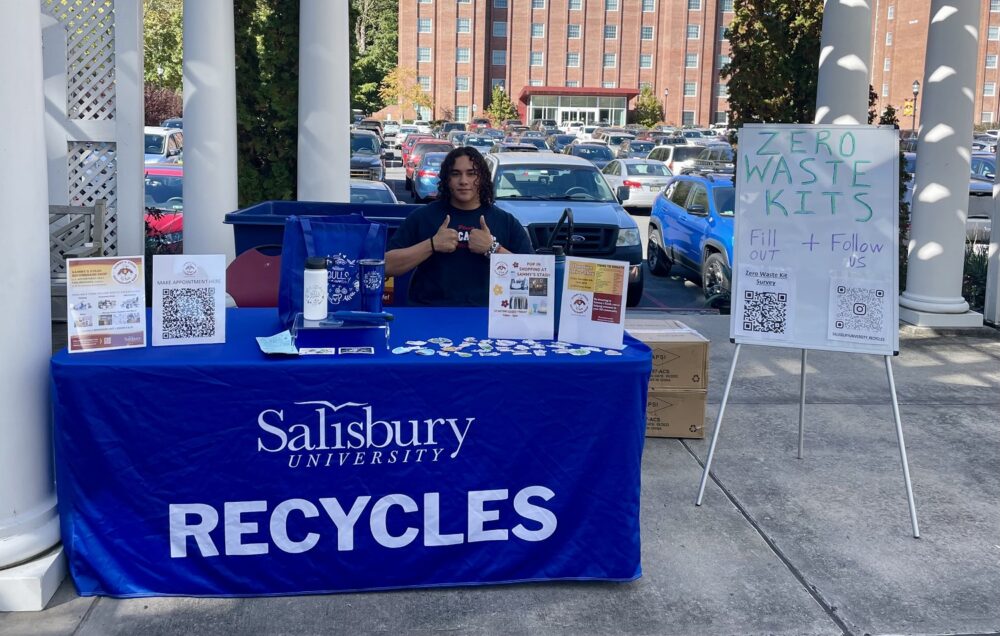We have much more to do and your continued support is needed now more than ever.
How To Find Funding For Unpaid Internships
This article is the first in a series by the National Wildlife Federation EcoLeaders Career Center Fellow, Elizabeth Morgan. Elizabeth will be covering various green career topics in advance of the inaugural NWF EcoCareer Conference, occurring online this February 22 and 23, 2017. Registration is free for members of the EcoLeaders community (also free!).
Several years ago, I developed a passion for working in wildlife conservation. However, I’ve found that entering the wildlife industry is about much more than just having a passion. Many jobs in wildlife management and conservation — and in many green career sectors — require an advanced degree, several years of experience, and expert knowledge. Internships seem to be few and far between, and often I will find a great position only to discover it is unpaid or in a location out of my reach. I have had thoughts of giving up, but I have been fortunate to find alternate funding sources to continue pursuing my career. In this post, I’ll share some examples of how to find funding for unpaid internships and other work experiences.
 First off, grant funding — from either private foundations or government agencies — can be available for volunteer projects, unpaid internships, or personal research endeavors. There is money in wildlife conservation and other sectors of the sustainable economy; for instance, the federal government offers grants for environmental work with the Forest Service, Fish and Wildlife Service, and other agencies to individuals at grants.gov. When searching grants, be sure to check “individuals” in the eligibility section. Before beginning the application process, check if you are eligible for the grant by registering through grants.gov and reading up on the legal eligibility for each funding opportunity.
First off, grant funding — from either private foundations or government agencies — can be available for volunteer projects, unpaid internships, or personal research endeavors. There is money in wildlife conservation and other sectors of the sustainable economy; for instance, the federal government offers grants for environmental work with the Forest Service, Fish and Wildlife Service, and other agencies to individuals at grants.gov. When searching grants, be sure to check “individuals” in the eligibility section. Before beginning the application process, check if you are eligible for the grant by registering through grants.gov and reading up on the legal eligibility for each funding opportunity.
Another great tool is the database for non-governmental individual grants located at Foundation Grants. The database is specifically for individuals looking for funding and includes nearly 10,000 grant-makers. It offers details on funders that provide scholarships, fellowships, grants, and a wide range of financial support to individuals. You do need a subscription to access their database, but many libraries have a subscription you can use; check with your school or public library today. For me, the Denver Public Library’s subscription is available for use, and regardless of where you live, you can check out their how-to video on using the Foundation’s database.
When searching for internships, be sure to check with your undergraduate or graduate institution, if applicable, to see which internship and funding databases they are already paying subscriptions for. When I checked at my school, I found access to SPIN, the world’s largest database of sponsored funding opportunities. Although SPIN does not list internships, it does offer a database filled with scholarships and grants for research projects and internships. SPIN gives you the opportunity to create your own paid internship. With SPIN, you can approach an organization that may not have the resources to offer you a paid internship, and together you can tailor an internship perfect for you and still get paid for the experience.
 Additionally, there are organizations that offer internships with living stipends and housing. Even though they pay just about enough to get by, they are worth their weight in real-world experiences. The National Science Foundation (NSF) funds a large number of research experiences for undergraduates (REU). NSF helps students partner with institutions associated with a specific research project and offers a stipend, housing, and paid travel expenses for students to explore research opportunities around the globe. Along with REUs, NSF offers scholarships, grants for individuals, and fellowship programs. Check out nsf.gov for research opportunities with NSF.
Additionally, there are organizations that offer internships with living stipends and housing. Even though they pay just about enough to get by, they are worth their weight in real-world experiences. The National Science Foundation (NSF) funds a large number of research experiences for undergraduates (REU). NSF helps students partner with institutions associated with a specific research project and offers a stipend, housing, and paid travel expenses for students to explore research opportunities around the globe. Along with REUs, NSF offers scholarships, grants for individuals, and fellowship programs. Check out nsf.gov for research opportunities with NSF.
The Student Conservation Association (SCA) partners with federal agencies, such as U.S. Forest Service and Bureau of Land Management, to offer internships specifically for students involved in environmental conservation. SCA also offers living stipends, housing, and funding for relocation for short-term internships, throughout the year. Check out thesca.org to learn more — any projects that you work on with the SCA would be eligible for the NWF EcoLeader certification.
These are just a few of many possibilities in finding alternative sources of revenue in pursuing your passion in wildlife conservation. Although you do need to be creative, there are options to gaining real-world experience while attending school and getting paid for that experience. Comment here or in the EcoLeaders forums if you know of any other opportunities to identify funding for unpaid internships!
Want even more tips for an exciting green career?
Don’t forget to register for NWF’s virtual EcoCareer Conference, February 22 and 23, 2017.






















